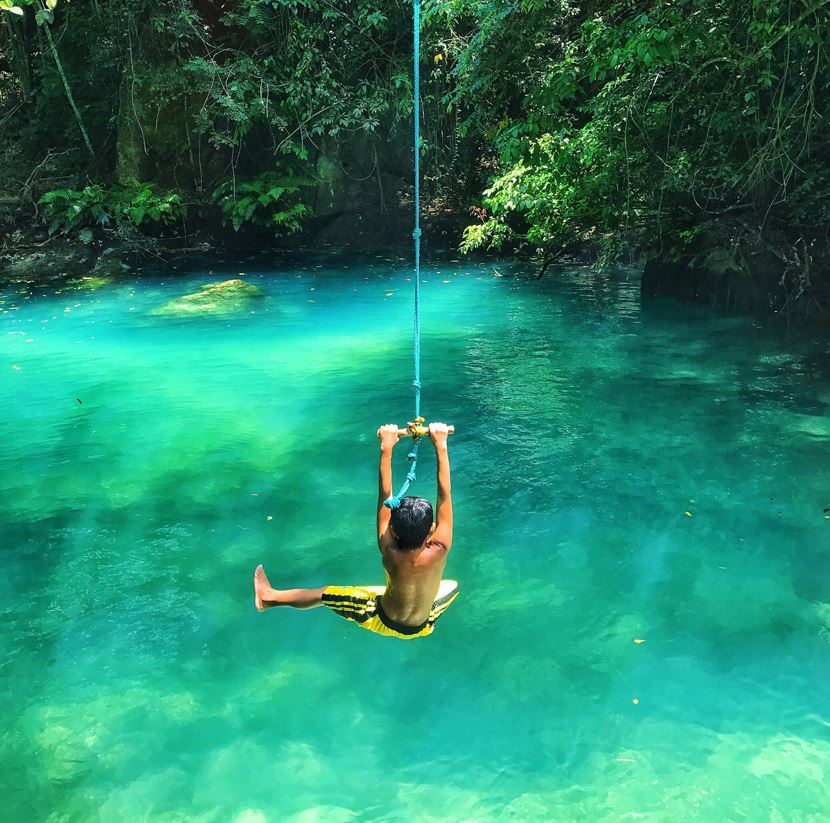Philippines
RFC Emigration Score: 89/100
Embark on a journey to the Philippines, a country renowned for its breathtaking islands, rich cultural tapestry, and the legendary warmth of its people. This archipelago of over 7,000 islands offers more than just picturesque landscapes; it’s a melting pot of history, culture, and biodiversity. In this review, we dive deep into the various facets of living in the Philippines, evaluating everything from the affordability of daily life to the vibrancy of its natural and cultural scenes. Whether you are drawn by the allure of its stunning beaches, the promise of a warm community, or the adventure of exploring its diverse ecology, the Philippines presents a compelling case for those seeking a new beginning. We will explore key factors that are crucial for anyone considering making this vibrant nation their new home, balancing the beauty and opportunities against the challenges and realities of life in this unique part of the world.

Why the Philippines is Right For You:
Budget and Cost of Living:
The Philippines offers an appealing cost of living, particularly attractive to those from higher-cost countries. Daily expenses, housing, and leisure activities tend to be more affordable. However, budgeting may vary significantly depending on lifestyle choices and the area of residence, with urban areas like Manila being more expensive.
99/100
Climate:
The Philippines’ climate is consistently warm, offering little variation, which simplifies wardrobe choices. The rainy season (June to November) sees heavy downpours and potential flooding, especially in certain regions, which can affect transportation and daily activities.
86/100
Weather:
The tropical climate brings warmth and sunshine year-round, ideal for those who enjoy warm weather. The dry season (December to May) is particularly pleasant for outdoor activities. However, the high humidity and heat during the summer months can be intense, requiring adjustments for those not accustomed to tropical climates.
81/100
Safety:
Safety varies across the country, with most tourist areas and major cities being generally safe. However, like in any country, it’s advisable to take standard precautions. Certain regions have higher risks due to political unrest, so it’s important
85/100
Nightlife:
The vibrant nightlife caters to a variety of tastes, from lively nightclubs in cities like Manila and Cebu to more laid-back beach bars in coastal areas. The local music scene is also thriving, offering a mix of international and Filipino music.
100/100
Healthcare Access:
In urban centers, healthcare facilities are of good quality, often comparable to Western standards, and private healthcare is affordable by Western standards. However, in more remote areas, healthcare facilities can be basic, and access to specialist treatment may require travel to larger cities.
92/100
Language:
The widespread use of English makes the Philippines a very expat-friendly destination. English is used in government, business, and education, making integration into society and the job market easier for English-speaking expatriates.
95/100
Political Stability:
The Philippines has a democratic government system, but it has experienced political shifts and occasional unrest. Expatriates should stay informed about the local political climate, especially during election periods or in certain regions with ongoing conflicts.
77/100
Beach Score:
The country is a beach lover’s paradise, boasting some of the world’s most beautiful beaches known for their crystal-clear waters and white sand. Beachfront living is a realistic and appealing option for many expatriates.
91/100
Nature Score:
With its diverse natural landscapes, the Philippines is ideal for nature enthusiasts. It offers everything from lush rainforests and mountain ranges to a rich marine ecosystem, perfect for activities like hiking, diving, and bird watching.
100/100
Natural Disasters:
Situated in the Pacific Ring of Fire, the Philippines is prone to natural disasters like typhoons, earthquakes, and volcanic eruptions. Expatriates should be prepared for these occurrences and understand the safety protocols.
50/100
Economic/Job Opportunities:
The economy is growing, with opportunities especially in sectors like BPO, IT, tourism, and education. However, foreign nationals may need work permits, and certain jobs are restricted to Filipino citizens, necessitating research and planning for job seekers.
89/100
Shopping and Grocery Access:
Urban areas offer a variety of shopping options, from high-end malls to local markets. Expatriates will find a mix of Western and local products, though imported goods can be more expensive.
90/100
Cost of WiFi/Data Score:
Internet services have been improving, but connectivity can be a challenge, especially in remote areas. Urban areas have better internet services, and the cost for data and WiFi is generally affordable.
97/100
Pharmacy Access:
Pharmacies are easily accessible in cities and major towns, often with no need for a prescription for common medications. However, it’s advisable to have a supply of any specialized medication as availability can vary.
99/100
Cryptocurrency Acceptance
The Philippines has a growing interest in digital currencies and fintech, though everyday transactions predominantly use traditional banking methods. Expatriates interested in cryptocurrency will find a burgeoning community and some services catering to digital currencies.
95/100
Bank Safety:
The banking sector in the Philippines is stable, with a range of domestic and international banks. Banking services are reliable, though expatriates should be aware of fees and regulations, especially for international transactions.
95/100
Public Transportation and Infrastructure:
Public transportation is widely available but can be crowded and less organized compared to Western standards. Infrastructure development is ongoing, with noticeable differences between urban and rural areas.
65/100
Cultural Activities and Events:
The Philippines has a rich cultural heritage, reflected in its numerous festivals, historical sites, and vibrant art scene. Expatriates can enjoy a range of cultural experiences, from traditional fiestas to modern art exhibitions.
97/100
Social Integration & Community Support:
The Filipino culture is known for its hospitality and warmth, making it easier for expatriates to integrate. There are also various expatriate groups and communities that provide support and social networking opportunities.
95/100
Taxation and Financial Incentives:
The tax system in the Philippines can be complex, and it’s advisable for expatriates to seek professional advice. There are some incentives for foreign investors and retirees, but generally, taxation is straightforward for most expatriates.
89/100
Real Estate Affordability and Availability:
Housing options are diverse, ranging from high-rise condos in cities to beachfront properties and rural homes. Property prices are generally lower than in many Western countries, but prime locations in cities like Manila can be expensive.
90/100
RFC’s Philippines Emigration Score:
85/100
In summary, the Philippines offers a distinctive blend of natural beauty, cultural diversity, and a genuinely hospitable community. Its strengths lie in its stunning natural environments, affordable cost of living, and the open-heartedness of its people. However, prospective residents should consider the challenges, such as the varying levels of infrastructure, the occurrence of natural disasters, and the dynamic political landscape. The country provides a unique experience that goes beyond the conventional expatriate lifestyle, offering opportunities for deep cultural immersion and personal growth. Whether you are seeking an idyllic coastal retreat, a vibrant urban experience, or a deeper understanding of Southeast Asian culture, the Philippines could be the perfect starting point for your new adventure. It’s a country that not only offers a home but also an experience rich in lessons, laughter, and life.

Leave a Reply